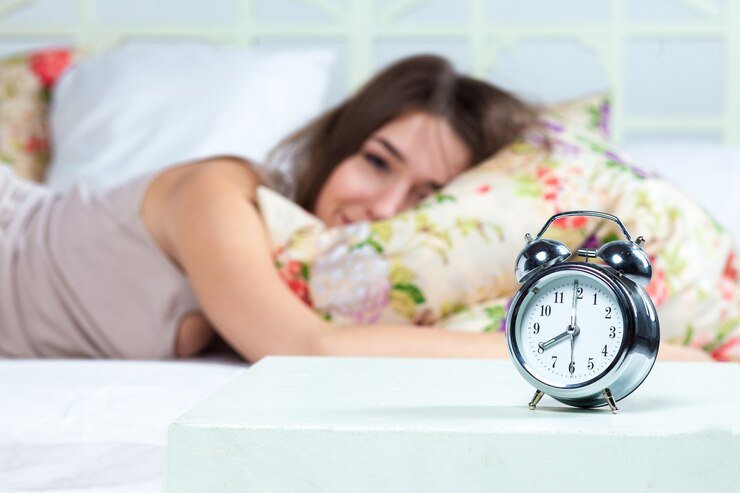Are you struggling with sleepless nights? If you’ve tried various remedies without much success, Seroquel for sleep might be worth considering. Originally developed to treat serious conditions like schizophrenia and bipolar disorder, this medication has been found to provide surprising benefits for those struggling with sleep problems.
Been wondering if Seroquel is the right choice for you? Don’t worry! Our easy-to-understand guide covers everything you need to know, from the benefits of Seroquel to its potential side effects. Find out if Seroquel for Sleep could be the sleep solution you’ve been looking for.
Are you taking Seroquel for sleep or considering it for your sleep issues? Great choice! Let me give you a quick overview. Seroquel (quetiapine) is a medication often prescribed for sleep problems, as well as conditions like depression and anxiety. It’s known for its effectiveness in helping people fall asleep faster and enjoy better sleep quality.
Wait! Wait! Wait! Let me take a pause. Have you ever noticed any side effects while taking Seroquel? While Seroquel can offer significant benefits, it’s essential to be aware of its potential side effects to ensure it’s used safely and effectively.
Okay, now, without further ado, let’s dig into all the details. Pretty much excited to learn more. Let’s get started!
What is Seroquel?

Seroquel, also known as quetiapine, is a medication initially created to treat serious conditions like schizophrenia and bipolar disorder. It’s classified as an atypical antipsychotic, which means it works differently from older types of antipsychotic medications. Recently, Seroquel for sleep has become popular for people struggling with sleep issues. Its ability to manage various sleep disturbances makes it a versatile option for those seeking better rest.
Many people have discovered that this medication can make a real difference in getting the sleep they need to feel their best. If you’re finding it hard to fall asleep or stay asleep, Seroquel could be a potential solution. It’s designed to regulate your sleep patterns and improve how well you rest at night.
How Does Seroquel Work?
Seroquel for sleep works by affecting certain chemicals in your brain called neurotransmitters, particularly serotonin and dopamine. These chemicals play a key role in regulating your mood and sleep patterns. By balancing these neurotransmitters, Seroquel helps to stabilize your sleep cycles and improve the quality of your sleep.

For many people, this means falling asleep more easily and staying asleep longer. The medication helps to create a more balanced environment in your brain, which leads to more restful nights. If you’ve struggled with irregular sleep patterns or frequent awakenings, Seroquel might be able to help you get back on track.
Importance of Seroquel
Using Seroquel for sleep significantly enhances your quality of life. While it was originally designed to address psychiatric conditions, its benefits for sleep issues are increasingly recognized. If you’re dealing with persistent insomnia or other sleep disturbances, Seroquel for sleep might be a valuable tool for sound sleep.
By improving your sleep, Seroquel can help you wake up feeling more refreshed and ready to tackle your day. Better sleep leads to improved mood, energy levels, and overall well-being. It’s important to remember that finding the right sleep solution is a personal journey, and Seroquel might be just what you need to achieve the restful nights you’ve been missing.
Dosage and Administration

- Recommended Dosages: When using Seroquel for sleep, it’s typically prescribed at lower doses compared to its use for other conditions like depression or bipolar disorder. The exact dose will be determined according to your individual needs and how well you respond to the medication. This personalized approach helps to get the best results with minimal side effects.
- Administration Guidelines: For optimal results, take Seroquel for sleep about 1-2 hours before your bedtime. This timing helps to make sure that Seroquel begins to take effect as you’re getting ready for sleep. If anything seems unclear or if you have questions about how to take it, don’t hesitate to reach out for clarification.
- Adjustments and Monitoring: Regular check-ins are important to see how Seroquel for sleep is working for you. These follow-ups allow for any necessary adjustments to your dosage and help keep track of how well the medication is helping with your sleep.
Finding the right balance with Seroquel for sleep might take some time, but staying in touch and sharing your experiences will definitely help in achieving the restful sleep you’re aiming for.
Interactions with Other Medications

- Drug Interactions: Seroquel for sleep can interact with various other medications and substances, which might affect its effectiveness or increase the risk of side effects. To keep your treatment safe and effective, inform your doctor about all the medications, vitamins, and supplements you’re taking. This will help avoid any potential issues and ensure that Seroquel works as it should.
- Impact on Effectiveness: How well Seroquel for sleep works can be influenced by interactions with other drugs, which might also impact your safety. It’s important to discuss any other medications you’re taking so that you can manage potential interactions effectively. This will help Seroquel remain effective and safe for your needs.
- Precautions: When taking Seroquel for sleep, be cautious about combining it with other sedatives or alcohol. These combinations can intensify side effects and impact your overall well-being. Use these substances in limited amounts and make sure to get advice on how to manage your treatment safely. Your health and comfort are key, so a bit of extra care can make a big difference.
Top 10 Benefits of Seroquel for Sleep

1. Helps You Fall Asleep Faster
If you’re frustrated by how long it takes to fall asleep, Seroquel for sleep might be the answer you need. Seroquel for sleep is designed to help you fall asleep more quickly, reducing those long hours spent staring at the ceiling. By making it easier to fall asleep, Seroquel helps you get the restful night you’ve been missing.
Taking Seroquel for sleep about 1-2 hours before bedtime allows it to start working just as you’re getting ready for bed. This timing helps ensure that the medication starts to take effect and helps you transition into sleep more smoothly.
When you can fall asleep faster, it sets you up for a better night’s sleep overall. You’ll find that your nights become more restful and sound, helping you wake up feeling refreshed and ready to face the day.
2. Boosts Sleep Quality
Getting to sleep is one thing, but sleeping well is another. Seroquel for sleep not only helps you fall asleep but also improves the quality of your rest. It enhances your sleep so you experience deeper and more restorative sleep, making sure you wake up feeling truly refreshed.

This medication helps to regulate the sleep cycle, ensuring that you get the most out of your sleep time. A better sleep quality means you’re not just sleeping longer but also sleeping more soundly, which is crucial for overall health and well-being.
With Seroquel for sleep, you’ll enjoy a more satisfying night’s rest. Improved sleep quality will lead to more energy and a better mood during the day, which makes a significant difference in how you feel overall.
3. Reduces Nighttime Awakenings
Waking up frequently during the night can disrupt your rest and leave you feeling tired. Seroquel for sleep helps to reduce these nighttime awakenings, allowing for a more continuous and restful night. This reduction in interruptions means you can enjoy a more uninterrupted sleep experience.
By stabilizing your sleep cycles, Seroquel helps to minimize those midnight wake-ups. This means fewer disruptions during the night leads to a more consistent and restful sleep pattern.
With fewer nighttime awakenings, you’ll find that your sleep is more complete. You’ll wake up feeling more refreshed, as the reduction in interruptions helps to improve your overall sleep quality.
4. Helps in Managing Sleep Disorders
If traditional sleep aids haven’t worked for you, Seroquel for sleep might be a promising alternative. Often used off-label for sleep disorders, it can be particularly effective for managing sleep disorders when other treatments haven’t been successful. It provides an alternative solution when traditional methods aren’t effective.

Seroquel for sleep targets specific brain chemicals involved in regulating sleep. This unique action can provide relief from chronic sleep problems, giving you a fresh option if other methods have failed.
Trying Seroquel for sleep could provide the solution you need if you’ve been struggling with persistent sleep issues. It’s a valuable choice when other treatments haven’t worked, which provides the relief you’ve been seeking.
5. Supports Mental Health
Many people who struggle with sleep also face mental health challenges. Seroquel for sleep confronts conditions like anxiety and depression, which can indirectly improve your sleep. By addressing both sleep and mental health, it offers a two-for-one benefit.
Managing these mental health conditions with Seroquel can lead to better sleep patterns. When your mental health improves, you’re likely to experience better sleep, making it easier to achieve a restful night’s rest.

Using Seroquel for sleep not only helps with sleep problems but also supports overall mental health. It’s a comprehensive approach that addresses multiple issues, helping you feel better both mentally and physically.
6. Non-Habit Forming
Worried about becoming dependent on sleep medication? Seroquel for sleep is non-habit forming, which means you don’t have to worry about developing a dependency. This makes it a safer choice for managing your sleep needs without the risk of addiction.
You can use Seroquel for sleep with confidence, knowing that it is not associated with the risk of dependency. This safety feature provides peace of mind and makes it a reliable option for long-term use.
Choosing Seroquel for sleep means you’re opting for a medication that helps to manage sleep issues without the concerns about addiction. It’s a reliable option for those concerned about becoming dependent on sleep aids.
7. Mood Stabilization
Mood swings or emotional instability can disrupt your sleep. Seroquel for sleep helps to stabilize mood, which leads to more consistent and restful sleep. A balanced mood contributes to a more stable sleep pattern and overall better rest.

By improving mood stability, Seroquel helps to address one of the root causes of sleep issues. When your mood is more stable, it becomes easier to maintain healthy sleep patterns and enjoy a more restful night.
Seroquel’s impact on mood stabilization can make a significant difference in your sleep quality. A steadier mood helps to ensure more consistent and restful sleep, which in turn, enhances both emotional well-being and overall sleep health.
8. Flexible Dosage Options
Seroquel for sleep comes in various forms and dosages. It offers a personalized approach to treatment. This versatility and flexibility enable the medication to be customized in accordance with your individual needs, helping you achieve the most effective results.
The different dosage options help your doctor find the right amount that works for you. This personalized treatment approach allows for adjustments based on how well you respond to the medication.
This adaptability makes Seroquel for sleep a versatile choice since it ensures that your treatment is customized to fit your individual needs, leading to better management of your sleep issues.
9. Improves Daytime Functioning

Sound sleep is essential for feeling your best during the day. By improving your sleep quality, Seroquel for sleep helps you wake up feeling more energetic and focused. This can enhance your mood and productivity throughout the day.
With better sleep from Seroquel, you’ll notice increased energy levels and a more positive attitude. This can make daily tasks easier and improve your overall quality of life.
Seroquel for sleep not only helps with nighttime rest but also benefits your daytime functioning. Improved sleep translates to better energy and mood helping you to navigate your day more effectively.
10. Offers Long-Term Benefits
Seroquel for sleep can be used as a long-term solution when managed correctly. Unlike some sleep aids that are only meant for short-term use, Seroquel can provide sustained benefits with proper medical guidance.
The long-term benefits come from its ability to support ongoing improvements in your sleep patterns. Regular follow-ups ensure that the medication continues to work well and remains safe for long-term use.
Using Seroquel for sleep offers a reliable, long-term approach to managing sleep issues. With the right medical support, it helps you maintain better sleep over time providing long-lasting relief from sleep disturbances.
Personal Stories and Testimonials

Many people who have tried Seroquel for sleep have found it to be a real game-changer. They’ve shared heartfelt stories about how it helped them fall asleep more easily, enjoy deeper and more restorative rest, and wake up feeling refreshed. For many, Seroquel for sleep has made a significant difference in managing their sleep problems.
But remember, everyone’s sleep journey is unique. What works for one person might not be the perfect fit for another. It’s essential to consider your own needs and talk to a healthcare professional to see if Seroquel for sleep might be right for you. Your comfort and well-being are top priorities, and finding the right solution is a personalized journey.
Potential Side Effects of Seroquel

1. Common Side Effects
- Drowsiness: Seroquel for sleep helps you fall asleep, but it might leave you feeling a bit sleepy or groggy the next day. If you find yourself struggling to stay alert, try to adjust your schedule or talk about it with your care team.
- Weight Gain: Some people notice they gain weight while taking Seroquel. This is something you can manage with a balanced diet and regular exercise.
- Dry Mouth: A dry mouth is a common side effect but it’s usually easy to manage. Drinking plenty of water, chewing sugar-free gum, or sucking on lozenges can help keep your mouth comfortable.
- Dizziness and Constipation: Though less common, you might experience dizziness or constipation. However, simple changes to your diet or daily routine might make a big difference.
2. Serious Side Effects
- Metabolic Changes: These could include significant weight gain or an increased risk of diabetes.
- Tardive Dyskinesia: This rare side effect involves involuntary muscle movements. If you notice any unusual movements, reach out for support as soon as possible.
- Severe Allergic Reactions: Although rare, severe allergic reactions can occur. Symptoms might include swelling, rash, or trouble breathing. If you experience any of these symptoms, seek medical help immediately.
3. Managing Side Effects
- Regular Monitoring: Keeping track of how you feel while on Seroquel for sleep is really important. Make a note of any side effects and discuss them with your care team to find the best way to manage them.
- Lifestyle Adjustments: Small changes in your daily routine can help with side effects. Adopting healthy habits and staying active can improve your overall well-being while on Seroquel for sleep.
What to Keep in Mind
If you are considering Seroquel for sleep. Here are some important things to keep in mind:

- Potential Side Effects: Seroquel for sleep can be effective for sleep, but it’s advisable to be aware of potential side effects. You might feel more drowsy during the day, notice some weight gain, or experience a dry mouth. Occasionally, more serious side effects can occur, like changes in metabolism or unusual movements. It’s helpful to keep track of how you feel and share any concerns with your healthcare team.
- Dosage and Administration: For sleep issues, Seroquel for sleep is usually prescribed at a lower dose compared to other conditions. Following the recommended dosage and instructions carefully will help you get the best results while minimizing any side effects.
- Drug Interactions: If you’re taking other medications or supplements alongside Seroquel for sleep, make sure to let your doctor know. Certain interactions could affect how Seroquel works or cause unexpected side effects.
- Long-Term Use: Using Seroquel for sleep over a long period is possible with regular check-ins. These check-ins make sure the medication continues to work well and allow for adjustments if needed.
To be honest, everyone’s experience with Seroquel for sleep can be different, so staying in touch with your healthcare team will help you find the right balance and support for a good night’s sleep.
Alternatives to Seroquel for Sleep
If Seroquel doesn’t seem like the best option for you, here are some alternatives that might help:

- Lexapro (Escitalopram): This medication is used primarily as an SSRI to treat anxiety and depression. By enhancing your mood and reducing anxiety, Lexapro can indirectly make it easier to fall asleep.
- Gabapentin: Originally developed for nerve pain, Gabapentin has calming effects that can be helpful for sleep, especially if your sleep issues are related to nerve pain.
- Propranolol: This medication is used mainly for anxiety and high blood pressure. It helps to manage physical symptoms of anxiety, which, in turn, improves your sleep.
- Cymbalta (Duloxetine): This SNRI is used for treating depression and anxiety. It helps to tackle sleep problems such as insomnia when those issues are related to depression or anxiety.
- Zoloft (Sertraline): Another SSRI, Zoloft is used to manage depression and anxiety, which improves sleep by addressing these root causes.
- Hydroxyzine: This antihistamine is used for its sedative effects to help induce sleep, though it is generally recommended for short-term use.
Conclusion
Seroquel for sleep provides a valuable solution for those struggling with persistent sleep issues. It helps you fall asleep more quickly, improves the quality of your sleep, and extends the duration of your rest. This makes Seroquel a beneficial option for many people. Additionally, Seroquel for sleep addresses both sleep problems and related mental health concerns, which makes it a versatile choice for enhancing overall well-being.
While Seroquel for sleep can be effective, it’s important to weigh its benefits against potential side effects. Consulting with your doctor is crucial to determine if Seroquel is suitable for your needs. They will customize your treatment to fit your specific needs and ensure it’s used safely and effectively.
Final Thoughts
Adding Seroquel for sleep to your routine could be a game-changer if you’re struggling with chronic sleep issues. It’s a medication with both psychiatric and sleep benefits, providing a dual approach to improve your overall well-being. But every person’s experience with sleep is different, so finding the right solution is key.
Consulting with your doctor will help you find whether Seroquel for sleep is the right choice for you and get the support you need. They can guide you through your options and create a plan that works best for the situation you’ve been through. With the right support and a personalized approach, achieving the restful, restorative sleep you need is entirely possible.
Engage with Us
Alright, dear visitors,
That’s all from my end. As of now, we’d love to hear from you—share your thoughts and experiences in the comments below. For more mental health-related content and updates, stay in touch with Ultimate Anxiety Guide and keep connected. If you want to connect personally, feel free to email us at ultimateanxietyguide@gmail.com.
Thanks for your time and effort.
Happy Browsing!
FAQs
